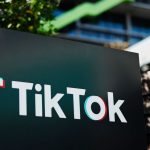A potential solution to tracking and measuring users on the open web is coming for the small screen.
ID5, an alternative ID tool that provides publishers and marketers with a way to track users without the use of cookies, is pitching itself to streamers, broadcasters, and CTV platforms, CEO Mathieu Roche told Marketing Brew. The company, Roche said, is holding conversations with device makers like Samsung, LG, and Roku, channel providers like DirecTV, and media giants like Warner Bros. Discovery and Paramount.
The move, which comes after the company raised $20 million in April, is ID5’s biggest push into the fragmented CTV ecosystem, and comes as interest in alternative IDs continues to grow.
ID5 is currently one of the largest on the open web, deployed across nearly 86,300 websites according to the ad tech analytics platform Sincera. It touts integrations with ad-tech companies like Magnite and The Trade Desk, as well as with publishers like CNN, News Corp, and Discovery. ID5, which was founded in 2017, claims that its ID is present in almost half of all online ad transactions.
Roche said ID5’s scale and its current partnerships will help it make inroads in the streaming business.
“We know how to solve the problem on the web. We have a massive footprint,” he said. “The next kind of area where we want to innovate…is really TV, because TV is facing some of the same problems that the web has been facing.”
Identity crisis: Advertisers have turned to alt-IDs in lieu of third-party cookies, which Google has said it plans to phase out of its Chrome browser by 2025. In the streaming space, though, there aren’t cookies, and advertisers instead rely on a “hodgepodge” of identity and measurement solutions from platforms and vendors alike, Roche said. Hardware companies like Roku and Samsung have their own advertising IDs, as do measurement firms like Nielsen and VideoAmp.
As streaming continues to grow, ad-tech companies like The Trade Desk and Yahoo are also pitching their services to streamers. ID5 expects to play the same role, pitching itself as a currency that can measure the effectiveness of an advertisement, like whether a viewer made a purchase from another device after seeing an ad on their TV.
Get marketing news you’ll actually want to read
Marketing Brew informs marketing pros of the latest on brand strategy, social media, and ad tech via our weekday newsletter, virtual events, marketing conferences, and digital guides.
“We’re not a broadcaster, we’re not a buying platform, we’re not a data provider,” Roche said. “We’re an easy infrastructure for everybody to agree on.”
The CTV ecosystem is trending toward less fragmentation, according to a May report from ad-tech consultancy Jounce Media. As more streamers make their inventory available programmatically via ad-supported FAST channels, CTV is “following a web-like trajectory“ toward nonexclusive ad tech partnerships, Jounce Media found. According to the report:
- FAST channels operated by Samsung, Vizio, LG, and Roku represent the first 27% of all streaming bid requests in the US.
- Pluto TV alone accounts for 22% of all CTV bid requests, vying to reach its 80 million monthly active users.
ID5 could also benefit from an oversaturated ad market following a flood of impressions introduced by Amazon Prime Video’s expansion into advertising and the growth of ad-supported tiers from major players like Netflix. If ad buyers believe in alt-IDs, streamers might be forced to accommodate them.
“There’s been so much supply that’s come on market that it’s become a little bit of a buyers market over the last 18 months,” Moe Chughtai, global head of advanced TV at the agency MiQ, told Marketing Brew. “Publishers do feel pressure to meet buyers where they are.”
Counterpoint: More importantly, most viewing still takes place within logged-in environments, meaning there is less use for alt-IDs in those ecosystems. Despite the prevalence of FAST channels, streaming inventory isn’t nearly as infinite as the internet, explained Dave Morgan, executive chairman of Simulmedia.
In other words, there isn’t much of a CTV long tail.
“The industry does not want it,” Morgan told Marketing Brew.“The industry does not need it. The industry will only lose if people believe in it.”
Read the full article here










